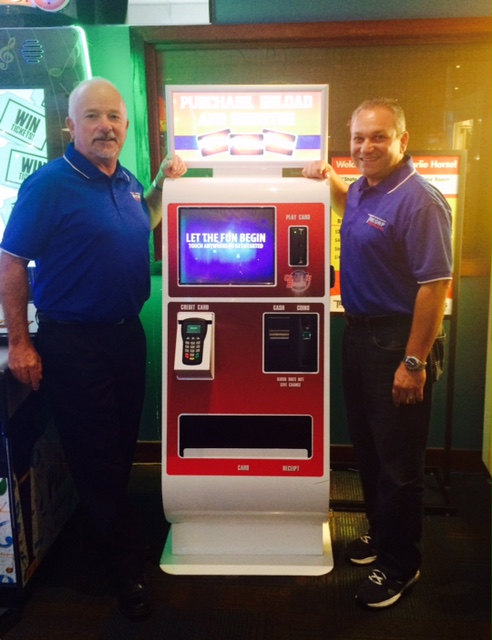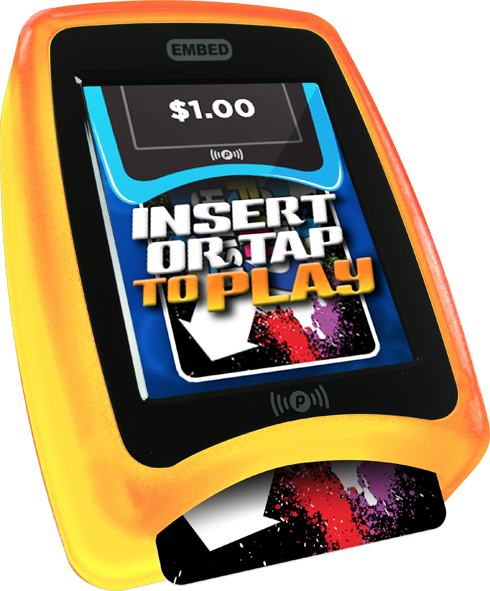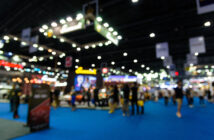Redemption: Is It Art or Science?
The Balance that Creates Success Starts with the Fundamentals
By George McAuliffe, Chief FEC Strategist, Redemption Plus

George McAuliffe
I’ve seen a lot of tools and trends come and go in my time in the FEC business. Debit card systems have been the single, highest-positive-impact innovation in all of those years (IMHO). So I thought that we’d explore that impact with a cross section of game and FEC operators in this column, asking what the top benefits have been in switching over to debit cards.
Andy Bartholomy, aka Andy B, is a leader in the bowling entertainment center sector. We first worked with Andy in 2007 on his conversion of River Lanes, then an 80-lane traditional bowling center, into Andy B’s, a fully transformed bowling entertainment center (BEC). In subsequent years, more Andy B transformations occurred, notably in the Memphis market and in Springfield, Mo. We continue to work closely with Andy and his team and know him to be one of the serious business thinkers in the BEC world.

Andy Bartholomy
Andy told us: “A great feature of the debit card system is the ability to go to e-tickets (replacing paper), which has eliminated the number one cause of game service problems. Next is the ease of spending. Customers can easily add more play to cards by converting from cash or credit cards with increased float as a side benefit.
“The third benefit is that the system offers a much more detailed way of reporting and tracking game room performance, which helps target our efforts to improve,” Andy said. “Finally, card systems provide a great loss prevention tool. Theft is removed dramatically compared to a token or quarter system.”
Jon Erdman is the FEC and IT point person on the Bowl New England management team. The company has deep roots in the traditional bowling business: Its owners, the Corley family, have been leaders in the bowling industry since 1968.
In 2008, we were pleased to advise them as they acquired and converted their first facility in Hendersonville, N.C. Reflagged as Spare Time, a state-of-the-art BEC, the conversion was a smashing success, so much so that Bowl New England resolved to transform their company. Today, they operate some 17 BECs in nine states. Jon has been the central player throughout the transition as the company developed its best practices around games and FEC attractions.
Like Andy, Jon confirmed that the ability to eliminate “the most common maintenance tasks –– token and ticket jams –– is huge.
“The debit card system also drastically increases our flexibility with regard to bundling offers,” Jon continued. “We can package games and laser tag, for example, to drive higher customer spend and overall revenue. An intangible might be the ‘WOW’ factor: We continually see our customers’ faces light up when you explain that everything goes directly on the card, especially parents who are relieved that they don’t have to drag around tickets anymore.
“On top of those pluses, card systems provide a great audit trail and reporting capabilities for operations and marketing,” Jon concluded.

Debit card system fans Chuck Peitz (left) and Joe Ingui of Tricorp Amusements with an Embed system kiosk.
Another fan of debit card systems is Tricorp Amusements’ President Joe Ingui. He works with CEO Chuck Peitz to manage the company, which has quietly grown to become one of the largest and most progressive game and FEC attraction operators in the U.S. Joe will tell you that debit cards have helped transform their business and extend their geographic reach. As a third-party game operator, Tricorp’s commitment to investing in the systems is telling.
“The biggest headache any game operator faces is service calls,” he shared. “Each call requires a tech to get in a vehicle and drive to a location at an average cost that might run $200. Our debit card systems eliminate 50% of those calls and probably pays for itself in service savings alone.”
Joe also said that “accountability –– for both us and our customers” is another big reason the systems are so beneficial. He added, “We live in a cashless society. Our players, like everybody else, are using less cash and more credit and debit cards. We have sites where 50% of our transactions are in cashless credit and debit card payments.”
At the recent Bowl Expo, I was fortunate to run into Paul Fabianski, General Manager of Boston Bowl in Boston, Mass. Paul had attended one of my seminars a few years back where the magic of debit cards was discussed. He shared his experience with me on converting his arcade from tokens and tickets to debit cards, which he calls a “smashing success.”
 Since Paul was converting from tokens to debit cards, I was curious what the top three savings he realized in the process. Paul answered, “First, is labor. I’ve gone from needing three or four people on weekends to two. We don’t have to handle ticket jams, refills, token jams or ticket redemption machines. Next, there is the hard cost of tickets and tokens. We spent $10,000 per year on tickets alone, plus tokens, parts for ticket dispensers and ticket redemption machines.”
Since Paul was converting from tokens to debit cards, I was curious what the top three savings he realized in the process. Paul answered, “First, is labor. I’ve gone from needing three or four people on weekends to two. We don’t have to handle ticket jams, refills, token jams or ticket redemption machines. Next, there is the hard cost of tickets and tokens. We spent $10,000 per year on tickets alone, plus tokens, parts for ticket dispensers and ticket redemption machines.”
The third place where he saved was through the data collection. “The reporting is so nice!” Paul continued. “We can easily check our payout percentages and adjust them to maximize play. We again save on labor –– no more manual coin and ticket meter readings and calculation –– plus those old manual readings were notoriously inaccurate.”
What was the effect on sales after conversion? “Our sales increased immediately,” Paul shared. “We are up 20% since installing the system.”
Paul added, “Parents really like it as they are not hauling around all the tickets, plus our service and guest experience is improved.”
George McAuliffe has created and operated family entertainment centers from 2,000 to 150,000 square feet as a corporate executive, entrepreneur and consultant. He’s President of Pinnacle Entertainment Group and leads the company’s strategic advisory team. George, recently moved back “home” to the Jersey Shore with his wife Julie, has a passion for passing along what he’s learned in the fun business to the new generation of operators and suppliers.
Readers can visit grouppinnacle.com for more information or contact George at georgemc@group
pinnacle.com; phone: 314-422-7197.




